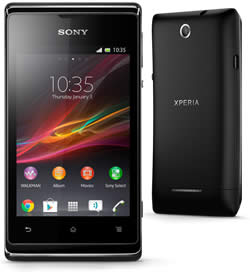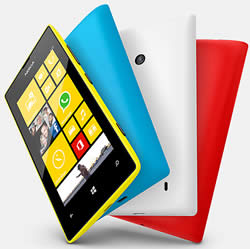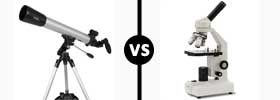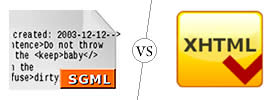Difference between Sony Xperia E and Nokia Lumia 520
Key difference: The Sony Xperia E and E-Dual are two entry-level phones from Sony Mobile. The phone comes with a 3.5 TFT capacitive that has a ~165 ppi pixel density. It comes with a 1 GHz Cortex-A5 Qualcomm Snapdragon processor, an Adreno 200 GPU and 512 MB RAM. The Nokia Lumia 520 is a 4-inch IPS capacitive touchscreen smartphone that offers 480x800 pixels display, which offers approximately 233 ppi. The phone comes with 8 GB internal memory that can be expanded up to 64 GB. The phone offers 1 GHz on its dual-core snapdragon S4 and only 512 MB RAM, which is slightly disappointing.
 Sony is a popular smartphone company and has been launching popular phones under the Xperia Brand. Since, its separation with Ericsson, the company has introduced multiple phones in different ranges to cater to all types of demands. The widespread demand of smartphones has required many companies to start manufacturing low-end phones for the masses. The new 2013 line-up of Sony phones include the Sony Xperia E and E-Dual phones. These phones are identical to each other and only differ in some features.
Sony is a popular smartphone company and has been launching popular phones under the Xperia Brand. Since, its separation with Ericsson, the company has introduced multiple phones in different ranges to cater to all types of demands. The widespread demand of smartphones has required many companies to start manufacturing low-end phones for the masses. The new 2013 line-up of Sony phones include the Sony Xperia E and E-Dual phones. These phones are identical to each other and only differ in some features.
The Sony Xperia E and E-Dual are two entry-level phones from Sony Mobile. These are the few of the cheapest models available on the market that have pretty decent features for a low-end phone. The phone has similar design themes to the older Sony phones with a slight inward curve and has shaved a lot of back bulk. The phone is slim and straight and is easy to operate using one hand. The company has also ditched the cheap, plastic back and replaced with it a rubber matte finish. This makes the back prone to fingerprint smudges, while the front screen is completely prone to fingerprints and dust smudges.
The front of the phone has a 3.5-inch display screen with three capacitive (Home, Menu and Back) buttons on the bottom. Above the screen is the earpiece, a hidden status LED and the proximity sensor. On the top end of the device, there is just a 3.5mm headphone jack, while the left side has a microUSB port. The bottom of the screen has a small LED light, while the right side of the device holds the volume rocker, power button and the dedicated camera key. The back of the devices holds the camera on the top and the loud speaker grille on the bottom.
The phone comes with a 3.5 TFT capacitive that has a ~165 ppi pixel density. In terms of technology these days, the resolution and the density is pretty weak, but as this is a entry-level the resolution is decent for the price. However, do not expect high definition resolution. The phone has pretty low contrast and poor viewing angles. The screen is made using scratch-resistant glass proving some sort of protection from scratches. The phone comes with the traditional Sony Timescape UI, which means it comes with certain built-in Timescape applications that are not removable.
In terms of speed and power, the phone is good for an entry-level model. It comes with a 1 GHz Cortex-A5 Qualcomm Snapdragon processor, an Adreno 200 GPU and 512 MB RAM. The phone supports 2G and 3G but not 4G. The Xperia E comes with Android 4.1 Jelly Bean out of the box, which is a good set-up. The Xperia E-Dual comes with Android 4.0.4 Ice Cream Sandwihch but can be upgraded to Jelly Bean. The Jelly Bean comes with all of the special features of Google, including Google Now. There are few modifications to the Android software. Upon unlocking the screen, the home screen has five screens, which are customizable. The differences between the ICS and Jelly Bean can be read in the article, The Difference between Ice Cream Sandwich and Jelly Bean on the website.
The major difference between the E and the E-Dual is that E-Dual supports dual SIM technology, while the E only supports single SIM. Both the phones come with a 3.15 MP back camera with a few features such as 4x digital zoom, Geotagging, Self-timer, Send to web and Touch capture. The camera does not have a great picture taking capability and has low resolution, but is okay for an entry-level phone. The phones also do not have a secondary camera, which means no video conferencing. However, it does have VGA video recording capability. The phone comes with 4 GB internal memory, of which 2 GB is available to the user and the memory is expandable up to 32 GB via microUSB card.
The phones come with a removable Li-Ion 1530 mAh battery that provides an okay battery capacity for an entry-level phone. The phone is considered as a no-nonsense android phone. The phone is a good entry-level phone and offers good features for its price. However, the person would have to sacrifice on secondary camera, photo resolution and a few features. The phone also offers certain neat features such as Overview mode (allows zooming out to see all open applications), Face Unlock, Wi-Fi tethering, Google Apps and Hand writing recognition.
 Nokia is a Finnish cell phone company, well known for its superb battery power and durability of its phones, and is the only phone that has not yet integrated its smartphones with Android. Nokia has been single-handedly leading Microsoft Windows OS 8 in the smartphone market. Most of the smartphones have become a pricy accessory to own, and if people opt for a cheaper phone, they must sacrifice on some features. To make a mark in the low- to mid-range smartphone market, Nokia has announced the Lumia 520, which should be available in April 2013 in India (release dates for the rest of the world is yet unannounced) and is currently up for pre-orders on many websites. It has even reached to the second-spot following Samsung Galaxy Grand on the Indian website, Flipkart. The phone is a variant of its big brothers 820 and 920, minus some ‘flash’ features. The Lumia 520 is a 4-inch IPS capacitive touchscreen smartphone that offers 480x800 pixels display, which offers approximately 233 ppi. This is pretty good display screen for a mid-range smartphone.
Nokia is a Finnish cell phone company, well known for its superb battery power and durability of its phones, and is the only phone that has not yet integrated its smartphones with Android. Nokia has been single-handedly leading Microsoft Windows OS 8 in the smartphone market. Most of the smartphones have become a pricy accessory to own, and if people opt for a cheaper phone, they must sacrifice on some features. To make a mark in the low- to mid-range smartphone market, Nokia has announced the Lumia 520, which should be available in April 2013 in India (release dates for the rest of the world is yet unannounced) and is currently up for pre-orders on many websites. It has even reached to the second-spot following Samsung Galaxy Grand on the Indian website, Flipkart. The phone is a variant of its big brothers 820 and 920, minus some ‘flash’ features. The Lumia 520 is a 4-inch IPS capacitive touchscreen smartphone that offers 480x800 pixels display, which offers approximately 233 ppi. This is pretty good display screen for a mid-range smartphone.
The Lumia 520 is a bar phone with the straight sharp edges and is available with the standard Windows Tile layout. The phone comes with 8 GB internal memory that can be expanded up to 64 GB. The phone offers 1 GHz on its dual-core snapdragon S4 and only 512 MB RAM, which is slightly disappointing. Another let down is the lack of a secondary camera, which makes it difficult to video conferencing. The phone does offer a 5MP autofocus primary camera, with 4X digital zoom and no flash. However, the company claims to use the same digital lens that is found on the flagship. The camera offers features such as Landscape orientation, Auto and manual exposure, Auto and manual white balance, Cinemagraph lens and Smart Shoot lens. The smart shoot lens allows the user to change individual objects in the photo and replace them with objects from the other photos. For example: incase the user is taking photos of two people; however, he does not like the expression of one person in the photo, they can swap the face for another face from another photo. The phone is customizable with changeable shells. The phone has a monoblock casing with the sleep/wake button, camera button and volume buttons on the right-hand side of the phone. Nokia also offers the Windows Office, plus Nokia Music and Nokia Maps. The phone also offers many different features including 7GB free SkyDrive storage.
The information for the detailed table about the two phones has been taken from Sony Mobile website, Nokia website, techradar.com and GSMArena.com. Unless specified, the information is the same for both phones.
|
|
Sony Xperia E/E-Dual |
Nokia Lumia 520 |
|
Launch Date |
E: March 2013 E-Dual: January 2013 |
April 2013 |
|
Company |
Sony Mobiles |
Nokia |
|
Size |
113.5 x 61.8 x 11.0 mm |
119.9 x 64 x 9.9 mm |
|
Display |
3.5-inch TFT capacitive touchscreen, 256K colors |
4'' IPS LCD capacitive touchscreen |
|
Screen |
320 x 480 pixels (~165 ppi pixel density) |
480 x 800 pixels (~233 ppi pixel density) |
|
Protection |
Scratch-resistant glass |
Scratch-resistant glass |
|
Weight |
115.7 grams |
124 grams |
|
2G Network |
GSM 850 / 900 / 1800 / 1900 - SIM 1 & SIM 2 |
GSM 850 / 900 / 1800 / 1900 - all versions |
|
3G Network |
E: HSDPA 900 / 2100 - C1505 HSDPA 850 / 1900 / 2100 - C1504 E-Dual: HSDPA 900 / 2100 - C1605 HSDPA 850 / 1900 / 2100 - C1604 |
HSDPA 900 / 2100 - RM-914 HSDPA 850 / 1900 / 2100 - RM-915 HSDPA 850 / 1700 / 1900 / 2100 - RM-917 |
|
4G Network |
N/A |
N/A |
|
GUI |
Timescape UI |
Windows Phone 8 |
|
CPU speed |
1 GHz Cortex-A5 |
1 GHz Dual-core Snapdragon S4 |
|
GPU |
Adreno 200 |
Adreno 305 |
|
OS |
E: Android OS, v4.1 (Jelly Bean) E-Dual: Android OS, v4.0.4 (ICS) upgradeable to 4.1 Jelly Bean |
Microsoft Windows Phone 8 |
|
Chipset |
Qualcomm Snapdragon™ MSM7227A |
Qualcomm MSM8227 |
|
RAM |
512 MB |
512 MB |
|
SIM Size |
E: miniSIM E-Dual: miniSIM (Dual SIM) |
microSIM |
|
Internal Memory |
Up to 4 GB (2 GB user available) |
8 GB |
|
Expandable Memory |
Up to 32 GB |
Up to 64 GB |
|
Sensors |
Accelerometer, Proximity sensor |
Brightness control, Orientation sensor, Ambient light sensor, Accelerometer, proximity |
|
Connectivity |
2G, 3G, DLNA Certified, HD Voice, Noise supression |
GSM, WCDMA, Micro-USB, Bluetooth, Wi-Fi |
|
Data |
GPRS, EDGE, WLAN, Bluetooth, USB |
GPRS, EDGE, WLAN, Bluetooth, USB. |
|
Speed |
HSDPA, 7.2 Mbps; HSUPA, 5.76 Mbps |
HSDPA, 21.1 Mbps; HSUPA, 5.76 Mbps |
|
WLAN |
Wi-Fi 802.11 b/g/n, DLNA, Wi-Fi hotspot |
Wi-Fi 802.11 a/b/g/n, dual band |
|
Bluetooth |
Bluetooth v2.1, EDR |
Bluetooth v3.0 with A2DP |
|
USB |
microUSB v2.0 |
microUSB v2.0 |
|
Primary Camera |
3.15 MP, 2048x1536 pixels |
5MP, autofocus camera |
|
Secondary Camera |
N/A |
No |
|
Video |
VGA@30fps |
720p@30fps |
|
Camera Features |
|
|
|
Sound Enhancement |
xLOUD Experience – audio filter technology; Active noise cancellation with dedicated mic; Manual equalizer |
None |
|
Audio supported formats |
MP3 (.mp3), 3GPP (.3gp), MP4 (.mp4, .m4a), SMF (.mid), WAV (.wav), OTA (.ota), Ogg (.ogg) |
MP3, AMR-NB, WMA 10 Pro, GSM FR, WMA 9, AAC LC, AAC+/HEAAC, eAAC+/HEAACv2, ASF, MP4, AAC, AMR, MP3, M4A, WMA, 3GP, 3G2 |
|
Video supported formats |
3GPP (.3gp), MP4 (.mp4) |
MP4, ASF, WMV, AVI, 3GP, 3G2, M4V, MOV |
|
Battery Capacity |
Removable Li-Ion 1530 mAh battery |
Li-Ion 1430 mAh battery |
|
Talk time |
2G: 6 hours 12 min 3G: 6 hours 18 min |
2G: 14.8 hours 3G: 9.6 hours |
|
Stand-by |
E: 2G: 530 hours 3G: 530 hours E-Dual: 2G: 368 hours 3G: 379 hours |
3G: 360 hours |
|
Available Colors |
E: Black, Pink and White E-Dual: Black and Gold |
Yellow, red, cyan, white/black |
|
Messaging |
Conversations, Email, Gmail™, Handwriting recognition, Instant messaging, Multimedia messaging (MMS), Predictive text input, Text messaging (SMS) |
SMS (threaded view), MMS, Email, Push Email, IM |
|
Browser |
HTML5 |
HTML5 |
|
Radio |
Radio (FM radio with RDS) |
No |
|
GPS |
GPS with A-GPS support |
Yes, with A-GPS support and GLONASS |
|
Java |
via Java MIDP emulator |
No |
|
Additional Features |
|
|
Image Courtesy: sonymobile.com, nokia.com









Add new comment